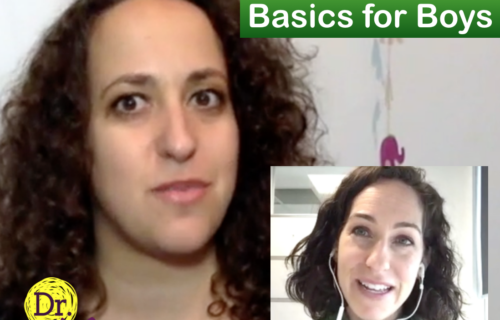
HOW TO PREVENT TANTRUMS BEFORE THEY START
Kids are like sponges; they absorb everything. Even when you think they are fully immersed in the latest version of My Little Pony, a piece of their mind is watching every step you take and listening to every word that comes out of your mouth. Your behavior is a model for their behavior. This is both a good thing and something to be concerned about.
If you’re dealing with tantrums in your kids, I’m going to have to ask this question: What behaviors have you been modeling? I would bet there are times when you lose your cool and engage in behaviors that could be defined as an adult tantrum, including: yelling, screaming, grabbing and pounding your fist against a table. If your small being is in the room, they are learning that those behaviors are appropriate ways to deal with a challenging situation.
The absolute best way to stop your child from having tantrums…is to stop throwing your own tantrums! That’s right – stop your adult tantrum!
Stop yelling at your kid when he accidentally spills juice on his shirt. Stop yanking your daughter’s arm to leave the park when she simply won’t get off the swings. Stop rolling your eyes when you get annoyed at the slow cashier at Stop&Shop. Most certainly, stop fighting with the other adults in your home.
Yes, this is all MUCH harder to do than to say, but it’s a critical key to stop explosive behavior in your child. You will still get angry, frustrated or annoyed in countless situations. Changing behavior is not about changing or denying how you are. It’s about changing your behavior while acknowledging your feelings.
What will you do with those big emotions? Right now the tantrum is letting emotions dictate your behavior. Control your behavior in the face of challenging or overwhelming emotions. I’m not asking you to deny your feelings when they occur.
You know the usual suggestions: take a deep breath, walk away until you’re calm, close your eyes and count to 10. Start applying these techniques – or any relaxation techniques — in your life. It’s not important what you do but rather that you do something to avoid the explosive behavior. Need motivation make this change? Do it for your children! Model the behavior you want them to have now and in the future.
Changing behavior is hard. Before you ask your kiddo to change their behavior, you need to change yours. You can’t expect your child to handle their emotions better than you do. Start putting the tools in place to make it happen. My favorite is actually talking (calmly) about my feelings. This shows your small being that emotions don’t dictate behavior. Say something like, “I’m so frustrated that I am going to be late because this line is moving so slow”. Maybe even take the next step and say, “Let’s find a way to take my mind off the time. How about we sing a song (or practice our spelling words or play I-Spy).” This models what you want your kids to do when they are upset, tell you how they are feeling and do something to change it.
Be the model for the behavior you want to experience. Talking about how to have good behavior will only go so far. Your actions truly makes a difference!
Insight into Action
What is one tiny thing you will stop doing this week? It can be as small as thanking the barista at Starbucks instead of silently grabbing your late. By writing this in the comments you will solidify your commitment.
Feedback? Thoughts? Comments? Leave ‘um below or email me at: Info@BehaviorAndBeyond.net.
With a little help, we can all grow. If a special person in your life can use this information, then please forward this blog.
For more helpful behavior information delivered straight to your inbox every Tuesday, sign up below!



